Tresor: 25 Years and Counting
Marking Tresor’s 25th anniversary, XLR8R meets those behind the Berlin powerhouse to discuss what lies ahead.
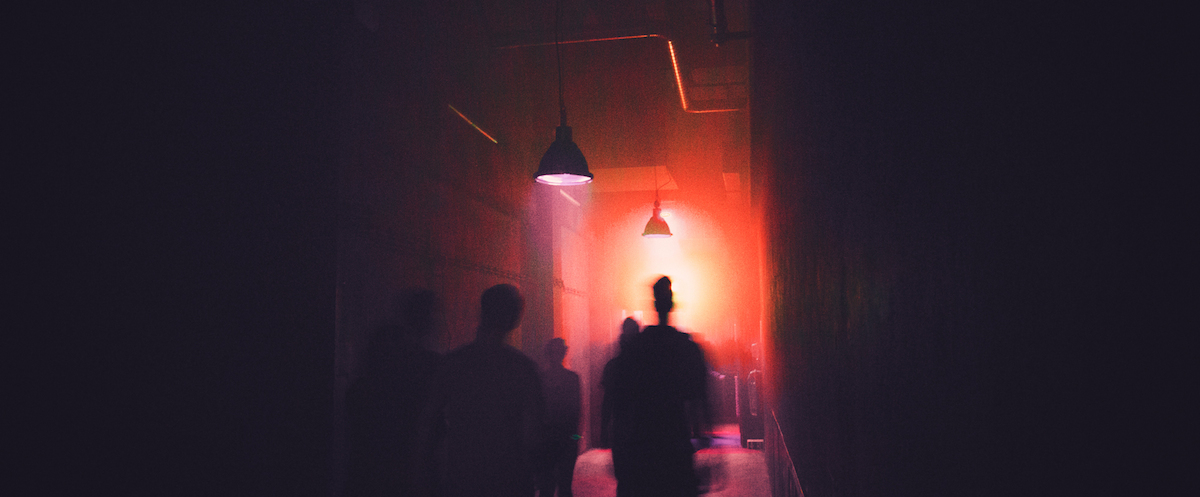
Tresor: 25 Years and Counting
Marking Tresor’s 25th anniversary, XLR8R meets those behind the Berlin powerhouse to discuss what lies ahead.

In what is still a relatively young genre, there aren’t many institutions which are yet to make it to the ripe old age of 25. Tresor has been a stronghold for techno lovers everywhere for a quarter of a century now, sitting right in the heart of the steadfast capital of the global scene, Berlin. This year, its owner, Dimitri Hegemann, and his close-knit team of employees, are tasked with the job of marking the occasion.
Tresor’s tale is one that has oft been documented. Taking advantage of the conditions in Berlin following the fall of the Wall in 1989, the club brought techno to kids from either side of the city, spearheading an alternative culture that many had no opportunity to experience previously. A gritty underground complex that formerly served as the vaults of a Potsdamer Platz department store became the scene of something totally fresh, the core location in a movement that reflected the mood of the time.
Their label was soon to follow, on a mission to share the emotive and totally unique sounds that Hegemann had discovered from Detroit. Their debutant outing was with Jeff Mills, Mike Banks and Robert Hood as X-101, a release that was followed by many more from the likes of Blake Baxter, Juan Atkins and Drexciya (amongst many other national and international artists). That second wave of Motor City techno producers, who ditched vocals in favour of cold, minimalist sounds, would unwittingly change the shape of club culture thousands of miles across the Atlantic in the reunified German capital, throughout the 90s and ever since.
It’s a subject that is clearly close to Hegemann’s heart, with tributes to Detroit ever-present in conversation even all these years later. Since those early days, he has witnessed his club’s metamorphosis into a large-scale business, though he still insists that it embodies that same spirit it did back then—the freedom of youth. In the face of venue closures (which caused a temporary hiatus during the mid-noughties, and a move to its current residence in a Mitte power station), pressure from higher powers, and the ever-changing tides of musical fashions, it is no mean feat for it to be going into its 25th year with such momentum.
XLR8R paid Hegemann a visit in the thick of preparations for the monumental year, accompanied by his new generation of leading Tresor representatives—Paulo Reachi, who is responsible for label management, and Diana Alagic, who handles club bookings. With information flying around about Hegemann’s increasing involvement in Detroit developmental projects, and a whole host of international showcases booked in for the year, we wanted to get to the bottom of what the future holds for Tresor.
Photo by G.V.Horst
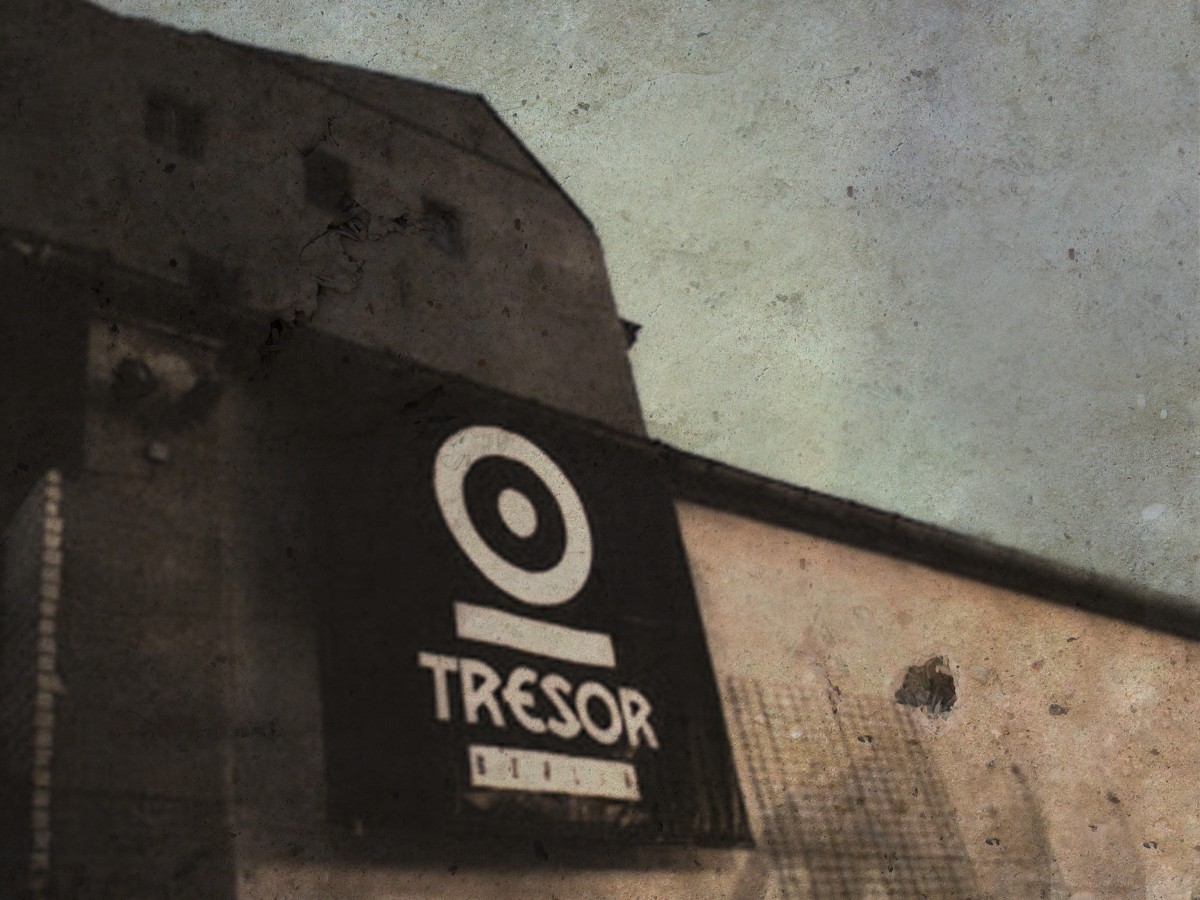
Let’s begin on the big anniversary. Where did you take inspiration from for the celebrations?
Dimitri: I transferred responsibility to Paulo and Diana, to let them decide. It was very important for me to be able to let it go, now that I’ve found the right people, to give them artistic freedom.My job is more to guarantee the club space, the platform for all of this to happen. No space—no club. Very simple. I can also remember the bad times, too. That’s just life. Everything went wrong, with the authorities, tax investigators, and that sort of stuff. Now, after a few years, thanks to the young generation we are back on track. What I can say though, is that Berlin has really developed—this techno thing is just so big here.
Diana: Definitely. What we were thinking with the 25 years celebration, is that because it’s such a huge event, it would just be better to split it across the year—to make three events, and a bigger one in July with the festival. The artists who are going to participate there are artists who have been related to Tresor over the years. We took inspiration from the older generation, but also from the new one, and tried to put it all in a new context, and to combine them in a fresh, new way.
Paulo: It’s always the most exciting exercise, whether it be club programme, or the label—the question of how we can link in the history with the present, and the future. We ask ourselves who the artists are that benefit from these trailblazers, and how do they bring those influences forward?
Photo by G.V.Horst
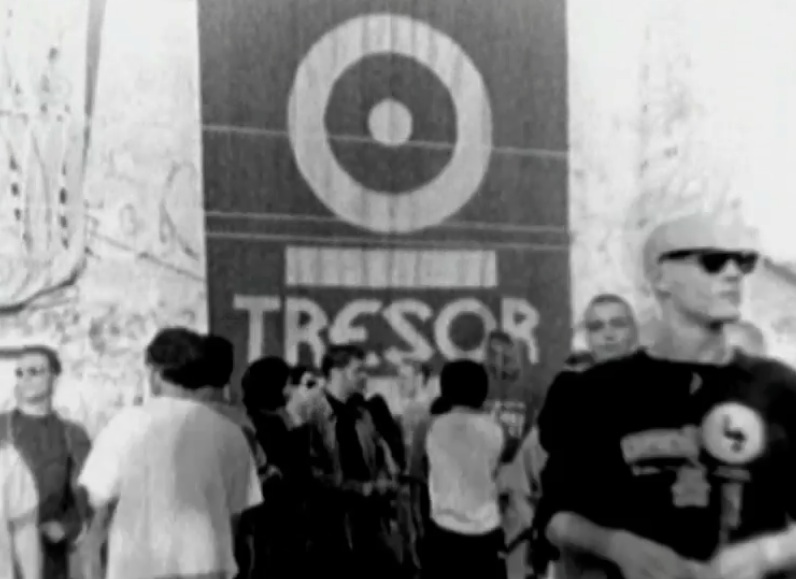
Can you elaborate on how you’ll bring these artists together?
Dimitri: It’s what we did with the Borderland LP, by just talking to the artists. That’s one of the challenges for the label—to talk to the stars. They might respect each other, but then we would have to bring them together, and help them get that idea. That’s a really interesting development. I went to the Zen Center recently, and realized that I would love to bring the Zen Master together with Jeff Mills, just to see what would happen. Maybe they could do a fantastic ambient thing together. It’s exactly what we did with Moritz and Juan. They’ve known each other for years, but they wouldn’t have done it unless we asked them. It works the same with bookings, too. It’s not easy today. We’ve got lots of competition with other clubs in Berlin. That’s a new thing. It’s not like the early days, when maybe a DJ would play Friday at EWerk, and Saturday at Tresor. It’s a bit sad.
Photo by Camille Blake
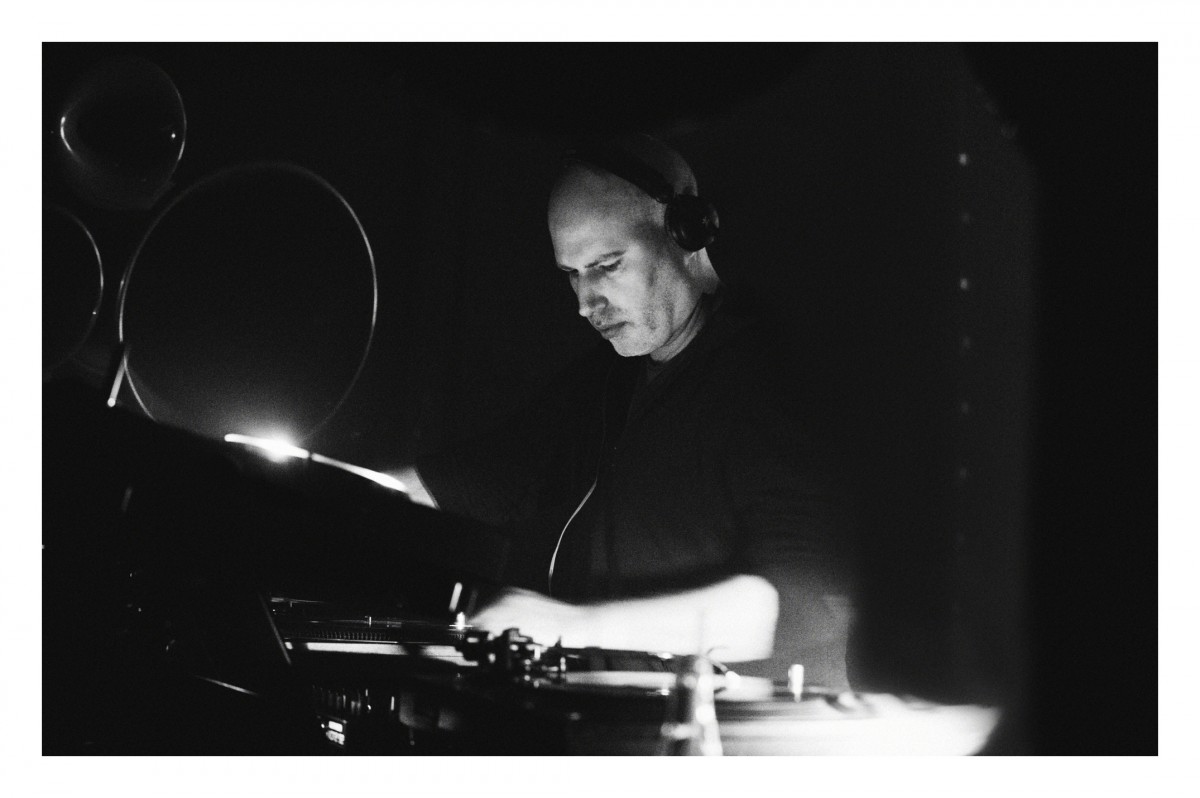
What was the idea behind the global party series?
Paulo: Basically, there’s a showcase event almost every month, starting at the end of March, and continuing until July. In some cases, they are venues and promoters that we have worked with in the past, while in others it’s small venues in small cities, which I know is a concept very dear to Dimitri. Maybe they just wanted to get a good idea of what it sounds like over here. We are doing a few dates in small towns in Spain, and a few in Poland too, and we are continuing to see how we can extend it, too. I guess the aim is to take a small part of Berlin to these places. It’s something that we don’t do very much during our regular schedule, but that we might want to make a bit more permanent. We are trying to find places that share the same philosophy, and maybe have similar spaces.
Diana: With lots of these places, where the scene isn’t so big, the people appreciate it a lot more. It’s an intense experience. China, for example—it’s a small scene, but the people are happy to be part of something for that one night.
“I’m very proud of the fact that we’ve kept that extraordinary quality in our spaces, and also that we didn’t sell our soul.”
Over the course of the 25 years, what have been your proudest achievements with the club and label?
Dimitri: I’m very proud of the fact that we’ve kept that extraordinary quality in our spaces, and also that we didn’t sell our soul. We never jumped on any bandwagons. We always stood by that idea, even though we often made mistakes, and had a few failures. The structure we have now is pretty good—everybody takes responsibility for themselves. You can’t get there overnight. It’s a long process, and it’s functioning well today. I’m very proud of the power station, and that we are still well-respected. It’s true of the label too; we are still getting great signings. I’m not bothered too much about competing to be number one all the time. I love that we sometimes have “Mr Nobody” playing, who will turn into a star the day after tomorrow. The people we work with are constantly facing big risks. The older DJs that we’ve been working for a while have managed to beat those risks. Jeff Mills for example—I don’t think we have ever shared a glass of wine. They are very disciplined. It’s show business, and on the other hand, it does offer so much fun. Techno has got such great power.
Do you still find the techno scene today as exciting as when it began?
Dimitri: It’s different, and I’m also less well-informed than back in the day. When I have been in the club a few times more recently, I still feel the same energy, even though I don’t have a clue what they are playing. The people, the shadows, the music. It’s still an incredibly powerful music, and it can really change the world around us. I would never say that it was better back then, but for me personally it was very fresh. The tracks were very reduced, very simple. They didn’t have so many opportunities for writing music back then. The tempo was even different back then, though maybe German people just dance a bit slower. When Jeff played here for the first time, he said that he thought he had done something wrong. Everybody was dancing alone in the smoke! He was very confused by it. Anyway, in general, I still like that the music is very tough. In particular, Tresor has remained true to itself, and true to its roots. There’s definitely a romanticism in the roughness—our visitors expect that, an unfinished nature to the ruins.
Photo by Camille Blake
Was there ever a point where you thought that you would have to stop everything with Tresor?
Dimitri: Well, I have passed it over to the newer generation sort of, but never thought about stopping it. Tresor represents an attitude that stands against the mainstream, and for artistic freedom. Even if we failed, we always got back up again. There might have been a wall between us before, but we wanted to get together and find a common way to have a good time. That made us strong. We also had a project going in Beijing, which would be like a small window into Berlin. It was at an old weapons store that Mao’s son had been using. We worked pretty hard, doing sound tests and sound-proofing on the building, but it failed in 2010 for two reasons. Firstly, the artist Ai Weiwei got arrested, and then there was a huge flood, which subsumed the building. It would have worked man, but the Chinese Government will shut down anything that they don’t like. I still like the spot a lot.
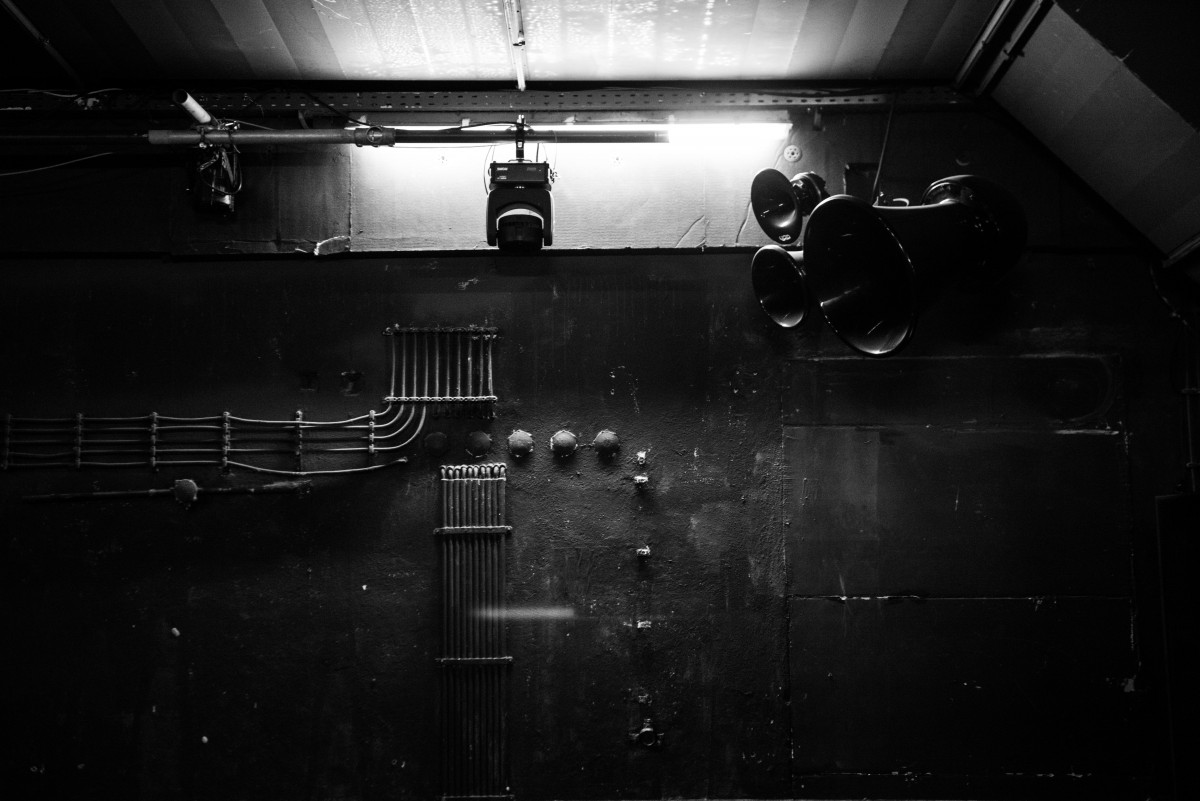
Diana: It was so similar to the original Tresor!
So what is happening with it now?
Dimitri: It’s still there. We gave it to our friend in Beijing, and told him that he could start it, and we would help him, but that we couldn’t take any responsibility for it. I don’t want any phone calls telling us about problems with the Police, or something like that. Our idea was just to take the Berlin nightlife to Beijing, because it’s really cool there—it’s just too risky. We’re trying it now with Detroit, at the Packard Plant, to which I’m an adviser. I’ve come up with the message of “Detroit Open All Night”—that they should be the first state to cancel the curfew! Then people would come. That’s their main problem, that they don’t have enough people. Some of the Government members from there came to Berlin to see what it’s about, and they really liked it. Our advice to Detroit is that they really need to hand some assets over to creative people. They may not have money, but they definitely have spirit. Anyway, if you let the kids drink in clubs until late, then they go home tired. There’s parties going on for a few days here. There’s no way that those kids would even be able to rob a car, they’re just happy when they get to their bed, but if you kick them out at 1AM, they’re upset! I mean, there’s only even a few districts here in Berlin that have nightlife going on—in the others, you can sleep! I’m just convinced that if you’ve got clubs like ours, or Berghain, then they shine bright for visitors to come to.
Diana: Detroit has already got cheap rent, and a lot of artists there. If there was a real club, it could be a big chance for that city. More artists would come, and there would be stronger networks built up. That’s the same power that Berlin has. So many people come here, and meet each other for the first time on the dance floor.
Photo by Camille Blake
Do you think it’s realistic for this change to happen in Detroit?
Dimitri: Yeah. We could get a zone there, like a Hong Kong in China. Change has already happened though, because spaces there are affordable, so artists are definitely moving there. It just lacks a real beacon that could shine, and attract people in, for people to talk about. They’ve got some of the best DJs in the world, but not even one cool club. There are carpets in the clubs! Well, that’s not really a club. To understand techno, you must celebrate it through the night. That’s the reason why Detroit techno did not take off in Detroit. The potential was so explosive, but it couldn’t happen, because there were too many limitations. In Berlin on the other hand, it boomed. Techno is responsible for the economic rise of the city, and now we need to pass things over to the younger generation. Let’s see what happens. It’s always going to be dependent on the spaces—I don’t want to listen to the music, I want to see it.
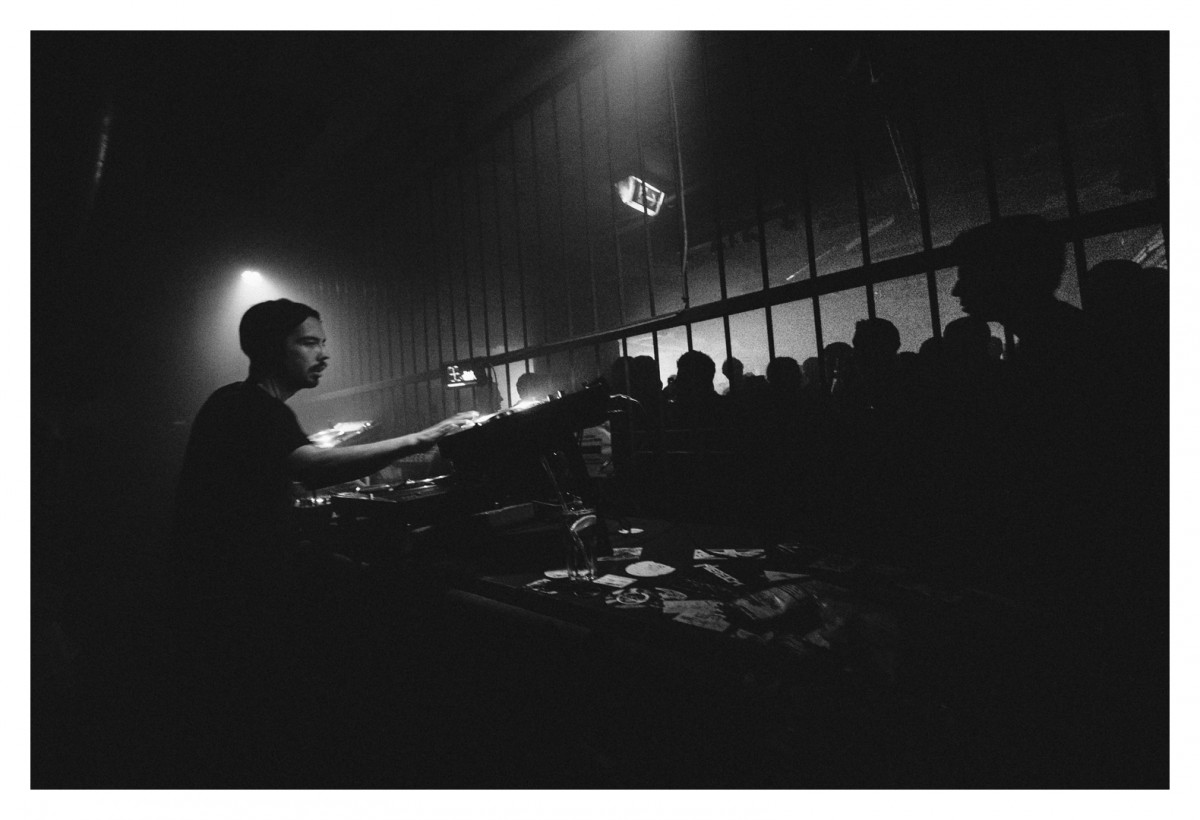
Diana: It’s the whole feeling. A room, a vibe, and the music of course. The whole experience, rather than just putting on a record in any room. You need the right people around you too.
Photo by G.V.Horst
And the focus on Detroit is just because of your history with them?
Dimitri: I’ve always said that we’ve got to pay something back to them, for the impulse that they gave us. When the wall came down, there was techno, but not in the form we know it today. It was tracks like Inner City‘s “Big Fun,” you know? No other genres could express the energy of the time like techno could. The kids were looking for something crazy, and the conditions were right.
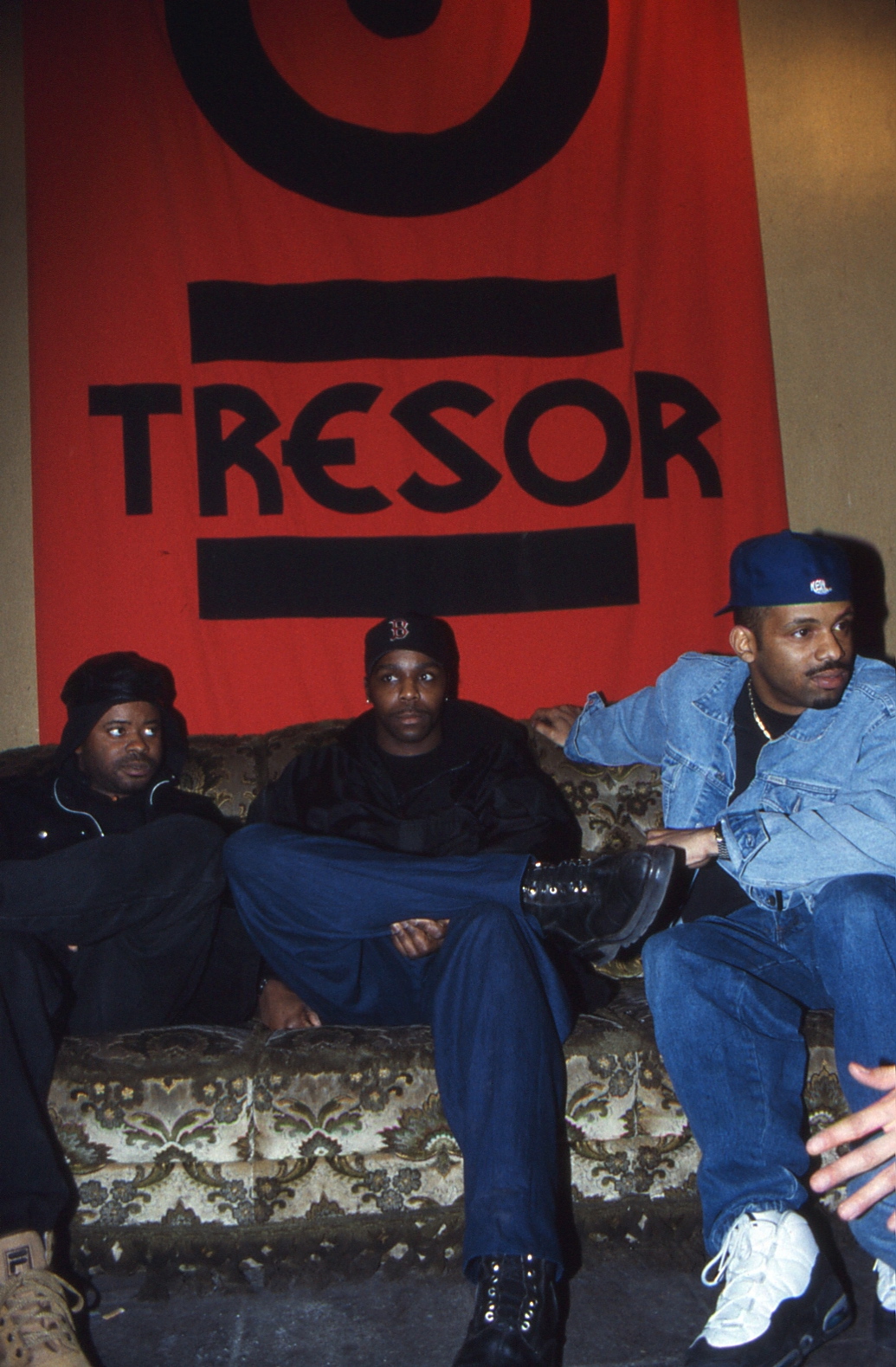
“I like there to be clarity in clubs, because I’m a purist. If you’re a techno club, then it should be a strict techno club.”
So in your opinion, how does global club culture work effectively right now?
Dimitri: I just do these kind of experiments, because I don’t really go out to clubs anymore! I’m asking myself what were the experiences over the past 25 years, and what were the achievements. It was never easy as a club owner, but clubs are really important for the city. The authorities are always suspecting you of something, chasing you for tax, or drugs, something like that. There are two different worlds—glamour clubs, and then high trash. That works for us here. I’m still surprised how many new clubs come and go here. It’s an incredible power—but what is that? People are just curious. They don’t think about the business, they just want to try something, to experiment. They see that we did it, and think then that they can do it too. I like that, the experimental atmosphere, but we are a very strict concept club—a techno club. It’s interesting compared to the USA, where they do techno, hip-hop, soul, and maybe even rock all in the same place. Under one roof they’ll have so many styles going on. It’s like a supermarket, you know? I like there to be clarity in clubs, because I’m a purist. If you’re a techno club, then it should be a strict techno club.
Photo by Camille Blake
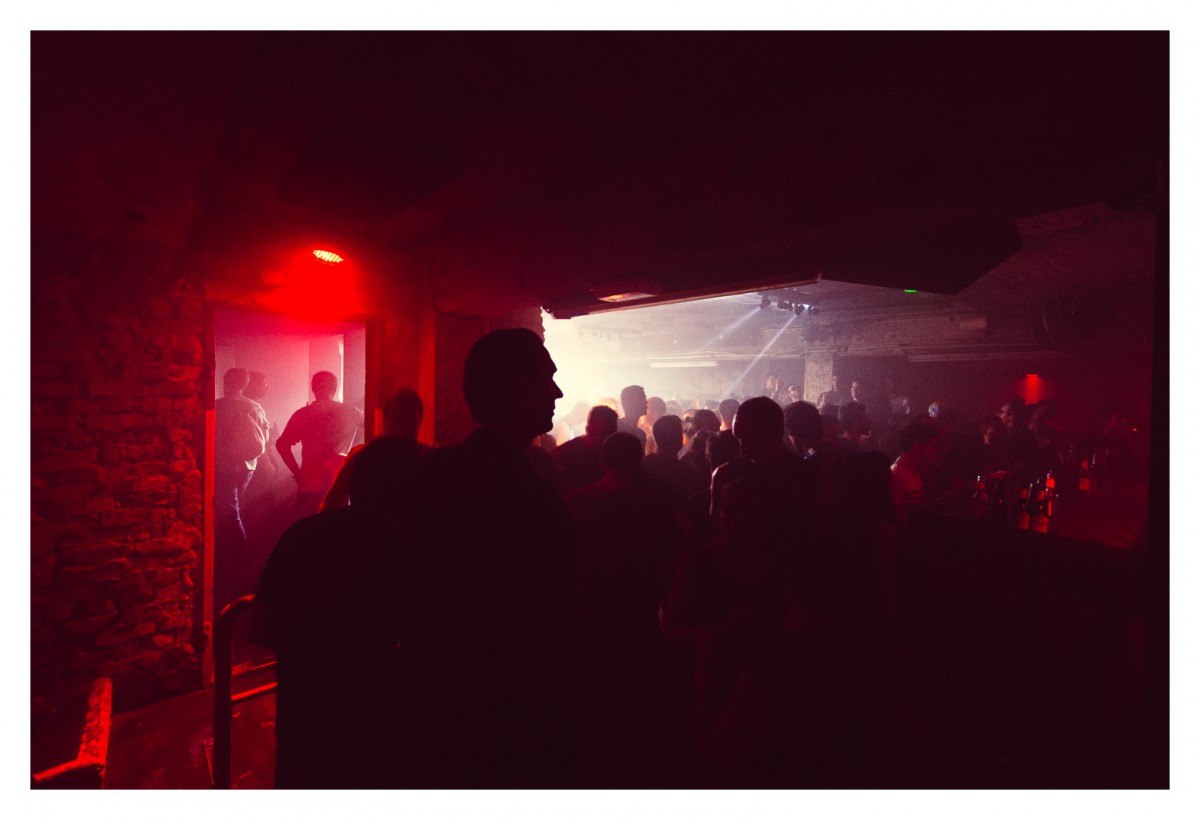
Looking to the label, just scanning through the upcoming releases, there are quite a few new faces—Objekt or Dasha Rush, for example. Do you look for a certain trait in your artists?
Paulo: It’s always a matter of finding who really embraces our heritage, our history and our sound, and is able to carry it forward. I’ve always been amazed by Objekt’s DJ sets, and how he can make one plus one equal three.
Diana: We’ve got a very strong connection with Dasha too—her label Fullpanda Records is always doing parties here. We’ve been working very closely with her for about four or five years.
Is that a common thing with the label—people who have played at the club, and you already have a good relationship with?
Paulo: Yeah. I mean, it depends, as there are a lot of different cases. Sure, we often release music by artists we have had strong relationships with over the years, who might be making steps towards production, or enhancing their sound. Sometimes it’s the other way round though—if we are really in tune with an artist, then we would reach out to them.
As far as the celebratory compilation goes, what’s happening on that front?
Paulo: We have been working on it for a few months now, and trying to encourage some collaborations with different generations coming together. There will be tracks hidden in the catalog, alongside new material too—but that’s all I can say for now!
Banner photo by Camille Blake.

